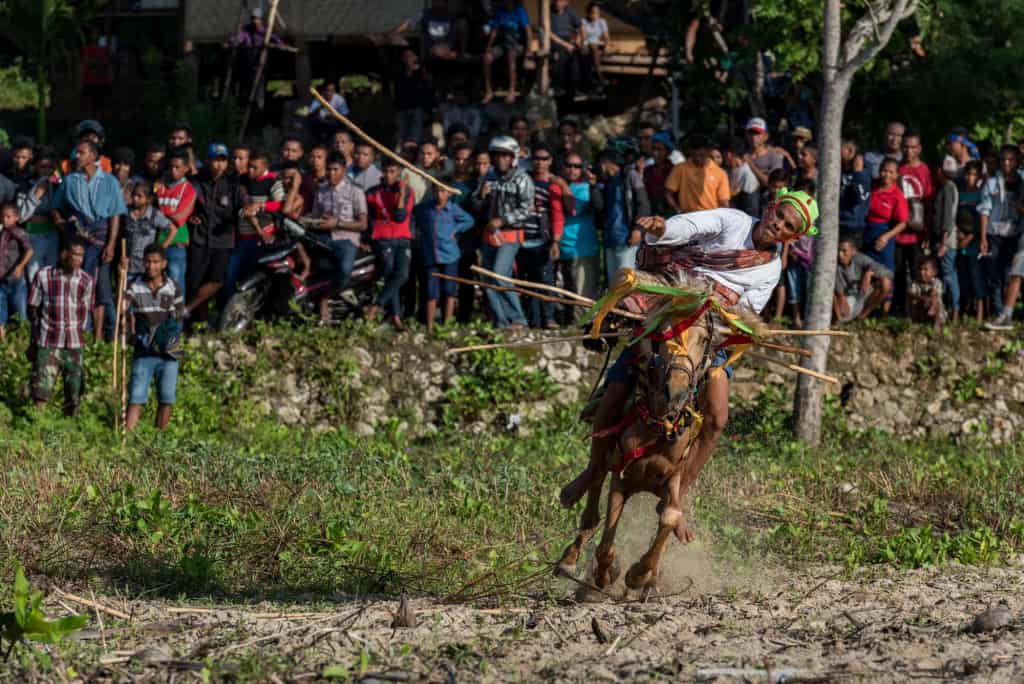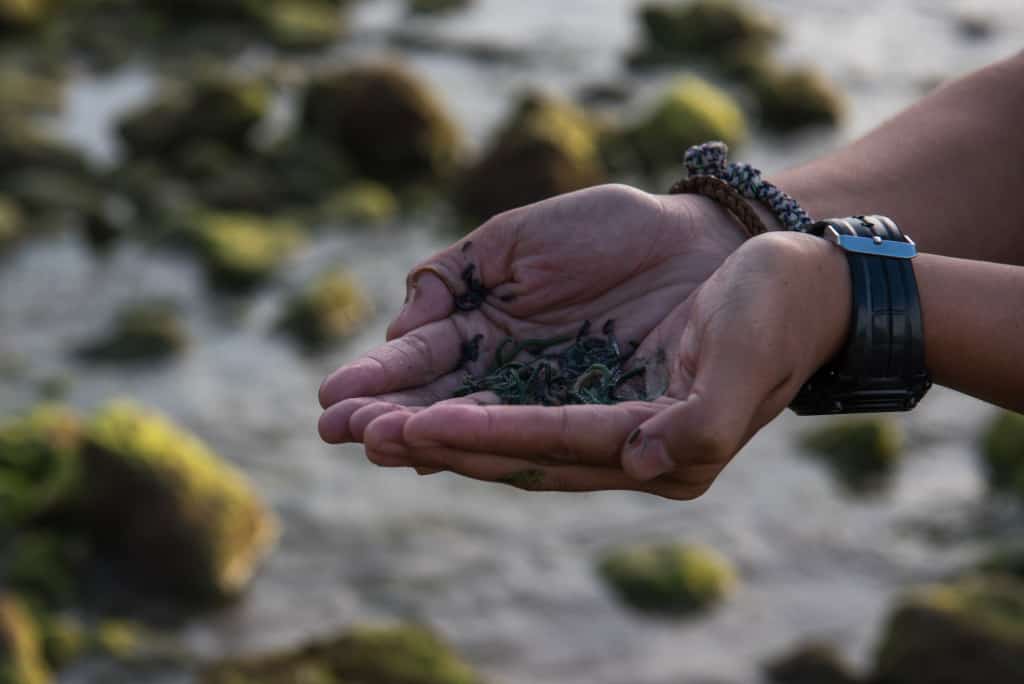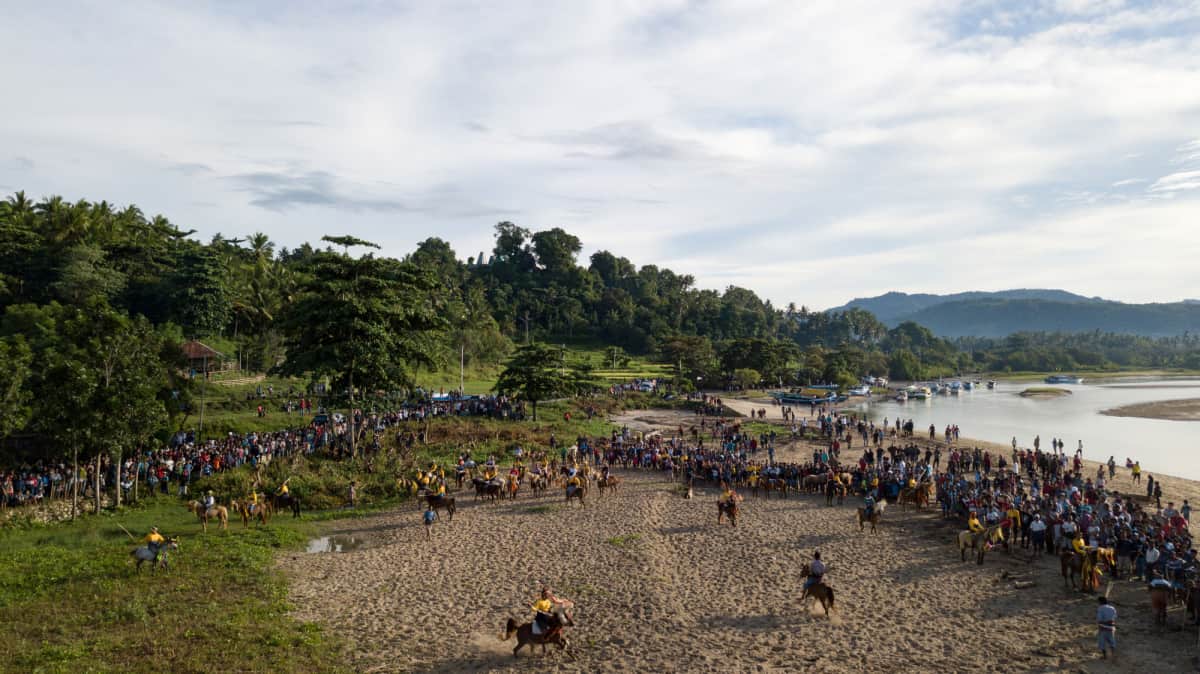Every February and March, colorful ritual displays known as the pasola are held by the Western Sumbanese to herald a good rice harvest. On horseback, villagers on opposing teams engage with blunted spears in an effort to dismount one another, demonstrating skilled riding and accuracy. The Pasola is deemed successful when blood is shed to fertilize the soil, “making the spirits happy.”

Horses are the soul of Sumba. With their remarkable endurance, easy temperament, and Arabian blood, they are a coveted possession both for farm work and the Sumbanese’ love of flat racing. Since they are easy to ride, children are often comfortable on horseback from a very young age. The sandalwood sport horses therefore are a highlight of strength and symbolism during the annual pasola.
The word pasola means spear in the local language and derives from the Sanskrit sula. Whereas participants originally rode horses and threw spears at each other in an attempt to shed blood on the ground as a way of thanking ancestors for a successful harvest, and ensuring another prosperous rice harvest, the ritual has changed over time into more of a mock battle. The spear tips are now blunt and their metal tips removed. It was once considered an honor to die during pasola, however only accidental deaths occasionally occur today.
The event traditionally begins when Nyale, a certain kind of sea worm, swims to shore, signifying the end of the wet season and the beginning of crop-planting.

Early in the morning the marapu priests and their entourage descent onto the beach to perform a prayer. They sacrifice a black cock to the gods and check the heart of the cock to read the signs from the gods as to whether to proceed with the pasola. They approach the sea afterwards to collect the colorful sea worm, then proceed to the field where the pasola will be played.

Read an observer’s up close account of the time honored tradition, here.
